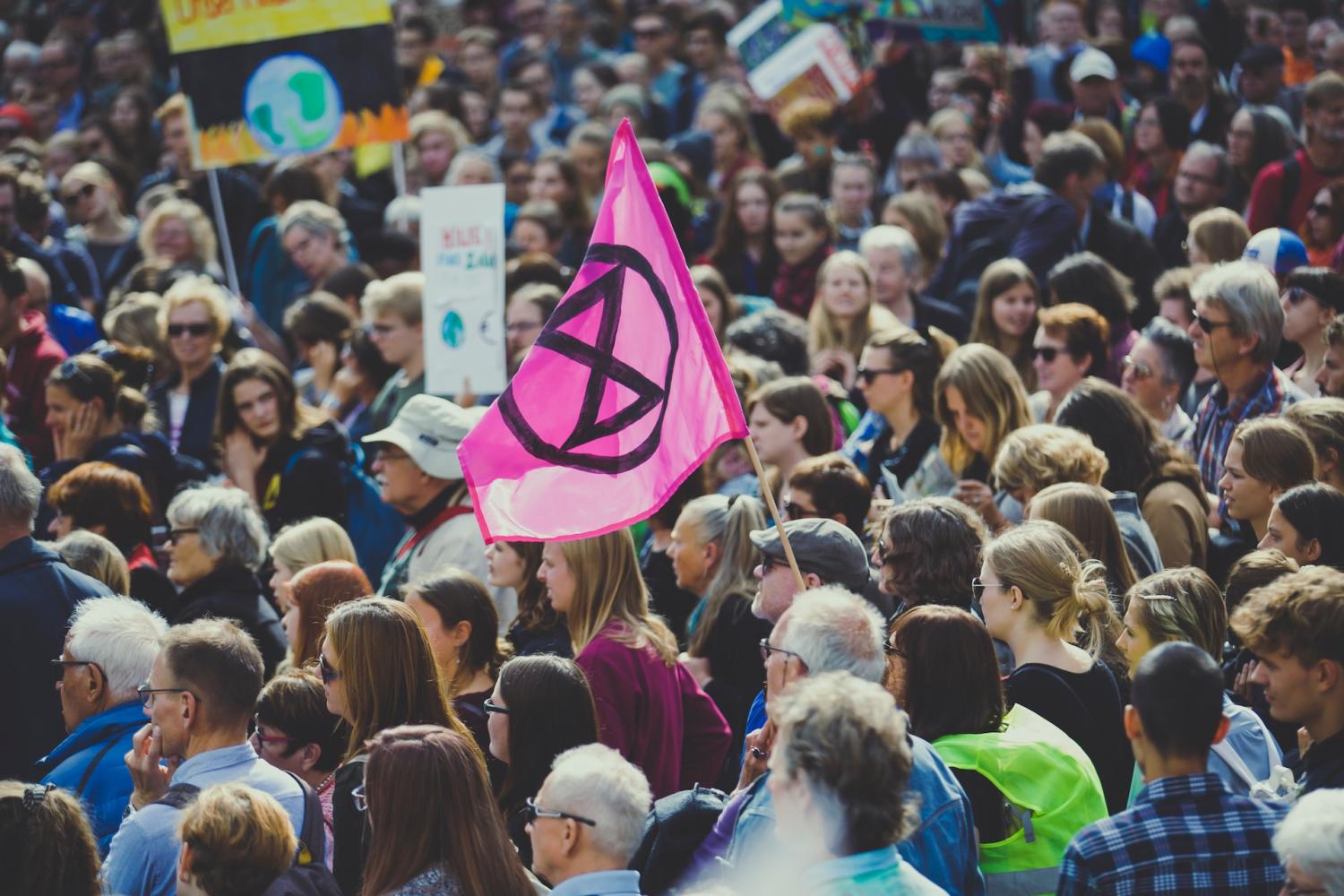
A 2019 Extinction Rebellion protest in Nuremberg, Germany
“Wars are rarely fought how they are planned,” or so said labor organizer Hugh O'Donnell after being arrested for leading workers in mass protest during the Homestead Strike of 1892 in Pittsburgh, Pennsylvania.
More than 130 years later, a new report on the efficacy of protest movements appears to have the evidence to support O’Donnell’s claim.
Social Change Lab researchers James Ozden and Sam Glover recently published their findings of a study on protest movements writ large. The duo collaborated with experts, examined the history of various protests, and researched public opinion on the subject. The pair then concluded that, though the majority of protest movements will fail, there is a small percentage that succeed in affecting change and/or influencing public thought, policy and behavior.
Ozden and Glover concluded that protest movements have a small but measurable impact on public opinion. The researchers based these findings on expert interviews and relevant academic work, and pointed to the ongoing Extinction Rebellion climate protest movement in England as a “case study” in a protest’s effect on public opinion.
So, what does the impact of an effective protest look like? Ozden and Glover believe the resulting impact of an effective protest would appear minimal, at least compared to the purported aims of a given movement.
Black Lives Matter protests in 2020 didn't end with local governments across the country defunding their police departments, and many did the opposite. Los Angeles and New York City have increased their police budgets since 2020. Other cities like Portland cut police budgets, only to “refund the police” just a year later. Therefore, if the average size of a police department budget is the only metric by which to judge the success of the BLM protests, then the movement was a failure.
Yet the protests undoubtedly brought a swirl of attention to widespread cases of police brutality across the nation, and the notion of holding rogue cops accountable for unjust actions has endured and gained momentum in the two years since the BLM summer protests of 2020.
The result was “sustained interest in novel discourse put forward by Black Lives Matter a year after the majority of the protests, and shown to be [10 times] larger than pre-protest activity,” the researchers wrote in their study.
The Social Change Lab study also concluded with great certainty that protests have a net positive effect on “public discourse,” meaning that movements often draw greater attention to the issues at the core of the protest and change the way people discuss the topic. Through this lens, the BLM movement was certainly effective — just not necessarily successful in achieving its own aims.
And if the BLM movement failed to win over some hearts and minds, it might not be due to civil disobedience or other obtrusive protest methods. The study claims that, contrary to popular belief, disruptive actions taken by protesters — such as Extinction Rebellion activists blocking off roads — do not discredit protest movements or undermine public support.
“Our bespoke public opinion polling found that disruptive nonviolent climate protest in the U.K. did not cause any “backfire” effect, i.e. there was no negative impact on public support for climate despite disruptive tactics,” the researchers wrote.
Likewise, Ozden and Glover concluded that protests have an equal impact (small, yet observable) on policy outcome, saying, “Our expert interviews with academics and movements experts revealed that large protests can be seen as credible signals of public opinion, and public opinion plays an important role in policymaking.”
In summary: The study indicates successful protests can generate change in discourse and opinion, which ultimately can translate to change in policy. But the rate at which protests succeed is variable, with no apparent method to the madness. That is, Ozden and Glover’s study can provide no clear framework or template for the successful protest movement. History bears this out — the Pullman’s Strike of 1894 (the reason for Labor Day) stood on the backs of The Great Railroad Strike of 1877 and other failed Gilded Era labor movements.
Public support may not have landed on the side of the laborer in the 1870s, but two decades of labor movements primed the American public to support the Pullman railway men in their pursuit of humane working conditions and compensation.
The arc of the protest universe is long, but it bends toward piecemeal justice.
Image credit: Markus Spiske/Unsplash

Patrick is a freelance journalist who writes what the robots can't. Based in Syracuse, New York, Patrick seeks to uplift, inform, and inspire readers with stories centered on environmental activism, social justice, and arts and music. He enjoys collecting books and records, writing prose and poetry, and playing guitar.














